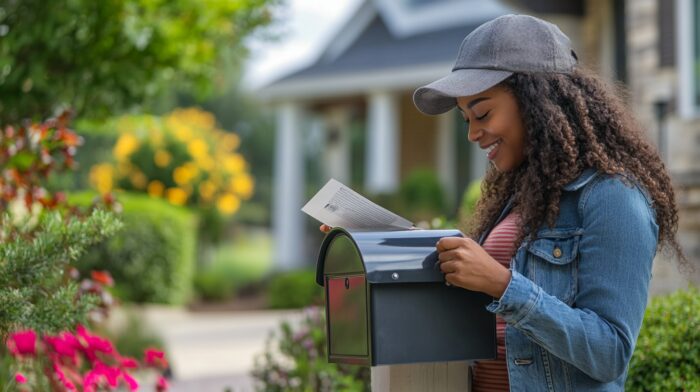In this article, we’ll explore how to create an effective newsletter schedule that keeps homeowners engaged without annoying them. We’ll delve into the importance of a well-planned schedule, factors to consider when determining frequency, suggested newsletter frequencies, tips for crafting engaging content, and best practices for sending newsletters.

The Importance of a Newsletter Schedule
A well-planned newsletter schedule helps you maintain consistent communication with homeowners. It ensures that your messages are timely, relevant, and anticipated. Consistency not only fosters familiarity but also strengthens the relationship between you and your audience. Here’s why a newsletter schedule matters:
Building Trust and Credibility
Regular newsletters help establish you as a reliable source of information. When homeowners receive useful content from you consistently, they begin to trust your expertise and view you as a credible resource. This trust can translate into long-term loyalty, making them more likely to reach out to you when they need services or advice. Moreover, credibility is enhanced when the information provided is accurate and presented in a professional manner, reinforcing your position as an industry leader.
Keeping Homeowners Informed
A newsletter allows you to share important updates, tips, and resources with homeowners. Whether it’s about real estate trends, home maintenance tips, or community events, a newsletter keeps homeowners informed and engaged. Informed homeowners are empowered homeowners; they can make better decisions regarding their properties. Additionally, by keeping them updated on relevant issues, you position yourself as a thought leader who is attuned to their needs and interests.
Driving Engagement
Frequent communication keeps your audience engaged with your brand. Engaged homeowners are more likely to take action, whether it’s contacting you for services, sharing your content, or referring you to others. Engagement can also lead to increased interaction on other platforms, such as your website or social media, further expanding your reach. Plus, a well-engaged audience is more likely to provide feedback, allowing you to fine-tune your services and content to better meet their needs.
Factors to Consider When Determining Frequency
Determining the right frequency for your newsletters involves considering several factors. Balancing these factors effectively will help in crafting a schedule that maximizes engagement without overwhelming your audience.
Audience Preferences
Understanding your audience is crucial. Some homeowners may prefer frequent updates, while others might find them overwhelming. Consider conducting surveys or polls to gauge your subscribers’ preferences. This feedback will guide you in tailoring your schedule to meet the expectations of your diverse audience. Additionally, consider segmenting your email list so that you can send different frequencies to different groups based on their preferences.
Content Availability
Ensure that you have enough valuable content to share. Sending newsletters too frequently without substantial content can lead to unsubscribes. Aim for quality over quantity. Develop a content calendar that outlines key topics and updates throughout the year, ensuring a steady stream of information to share. This strategic approach will help you maintain a consistent flow of valuable content that keeps your audience engaged.
Industry Standards
Consider the norms within the real estate industry. Research what your competitors are doing and find a frequency that positions you favorably within the market. While it’s important to be aware of industry trends, also strive to differentiate your approach by adding unique value to your newsletters. Keeping an eye on industry standards ensures that you’re not falling behind or overwhelming your audience, but remember to innovate where possible to stand out.

Suggested Newsletter Frequencies
Here are some suggested frequencies for sending newsletters to homeowners. Each frequency has its own advantages, and the right choice will depend on your content strategy and audience preferences.
Weekly Newsletters
A weekly newsletter can be effective if you have a steady stream of valuable content to share. This frequency keeps you consistently in front of your audience, helping to build a strong relationship over time. However, ensure that each newsletter is packed with useful information to avoid overwhelming your subscribers. With weekly updates, you can cover a wide array of topics and keep your audience engaged with fresh content. Just be mindful of the time commitment required to maintain this frequency.
Bi-Weekly Newsletters
Bi-weekly newsletters strike a good balance between staying in touch and not being too intrusive. This frequency allows you to gather enough content to provide value while maintaining regular communication. By sending newsletters every two weeks, you give yourself ample time to curate engaging content and respond to any feedback from previous editions. This schedule is ideal for those who want to maintain a steady rhythm of communication without the pressure of weekly deadlines.
Monthly Newsletters
Monthly newsletters are a popular choice for many real estate professionals. This frequency allows you to compile a comprehensive update, ensuring each newsletter is rich with valuable information. It’s often enough to keep you on homeowners’ radar without being too frequent. With a monthly schedule, you can focus on in-depth content and include detailed analyses or reports, making each edition a must-read. This approach also provides an opportunity to reflect on the previous month and plan for the next.
Quarterly Newsletters
Quarterly newsletters can be effective if you have significant updates or seasonal information to share. This frequency is less intrusive but requires that each newsletter be comprehensive and impactful. By sending newsletters every quarter, you can focus on high-quality content and significant updates that truly resonate with your audience. This schedule works well for businesses that have longer cycles of news or updates and can dedicate time to crafting thorough and engaging content.
Crafting Engaging Content
No matter how often you send your newsletter, the content should always be engaging and valuable. Here are some content ideas for your homeowner newsletters:
Real Estate Market Updates
Provide homeowners with the latest trends and updates in the real estate market. This information is highly valuable, especially for those considering buying or selling their homes. Including expert insights and projections can further establish your authority in the industry, making your newsletter a go-to resource for homeowners. Additionally, real estate market updates can serve as conversation starters, encouraging your subscribers to engage with you and ask questions.
Home Maintenance Tips
Share practical advice on home maintenance. Tips on seasonal maintenance, DIY projects, and energy-saving ideas can be very useful to homeowners. By offering actionable advice, you help homeowners take proactive steps in caring for their properties, which can enhance their living experience and property value. Furthermore, including visual aids such as infographics or videos can make the tips more accessible and appealing to your audience.
Community News and Events
Keep homeowners informed about local events and community news. This can include information about new businesses, community projects, or local events. Highlighting community news fosters a sense of belonging and encourages engagement with local initiatives. It also demonstrates your commitment to the community, which can strengthen your relationship with homeowners and enhance your reputation as a community-focused professional.
Success Stories and Testimonials
Share success stories and testimonials from satisfied clients. This not only builds credibility but also provides social proof of your expertise. Highlighting positive experiences and outcomes can inspire confidence in potential clients and reinforce the value of your services. Additionally, showcasing testimonials in a creative and engaging format can capture the attention of your audience and make your newsletters more memorable.
Best Practices for Sending Newsletters
To ensure your newsletters are well-received, follow these best practices. These strategies will help optimize your communication efforts and enhance the impact of your newsletters.
Personalize Your Content
Personalization makes your newsletters more relevant and engaging. Use your subscribers’ names and tailor content to their interests whenever possible. By segmenting your audience based on demographics or past interactions, you can deliver more targeted and meaningful content. Personalization fosters a stronger connection with your audience and can significantly improve engagement rates.
Optimize for Mobile
Ensure your newsletters are mobile-friendly. Many homeowners will read your emails on their phones, so make sure your content is easy to read on smaller screens. Use responsive design techniques to ensure that your newsletters look great on all devices. Additionally, keep your subject lines concise and your call-to-action buttons prominent to enhance the mobile reading experience.
Use a Clear Call-to-Action
Include a clear call-to-action (CTA) in your newsletters. Whether it’s encouraging homeowners to contact you, visit your website, or follow you on social media, a strong CTA drives engagement. Be specific about the action you want your readers to take and make it easy for them to follow through. A compelling CTA not only boosts interaction but also directs your audience toward meaningful engagement with your brand.
Track and Analyze Performance
Monitor the performance of your newsletters. Track metrics such as open rates, click-through rates, and unsubscribe rates to understand what’s working and what needs improvement. Analyzing these metrics can provide valuable insights into your audience’s preferences and help you refine your content strategy. Regular performance reviews will ensure that your newsletters remain relevant and effective over time.
Conclusion
Creating an effective newsletter schedule is essential for maintaining regular communication with homeowners. By understanding your audience, providing valuable content, and following best practices, you can build a strong relationship with your subscribers. An effective schedule not only keeps your audience informed but also strengthens your brand presence.
Remember, the key is to find a balance that keeps homeowners engaged without overwhelming them. Whether you choose to send newsletters weekly, bi-weekly, monthly, or quarterly, consistency and quality content are crucial for success. By implementing these strategies, you’ll be well on your way to creating a newsletter schedule that keeps homeowners informed, engaged, and connected with your brand. Your efforts will result in a loyal subscriber base that values your insights and relies on your expertise in the real estate market.
Ready to Elevate Your Newsletters?
If you’re looking to create exceptional and engaging newsletters for your audience, consider partnering with Newsletter Pro. Our team of experts specializes in crafting high-quality, personalized newsletters that will captivate your readers and enhance your brand’s presence. Contact us today to learn how we can help you build strong relationships with your subscribers and achieve your communication goals. Reach out to Newsletter Pro and take the first step toward elevating your newsletter game!






